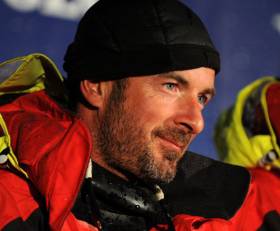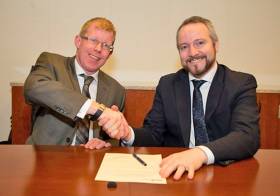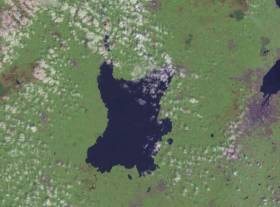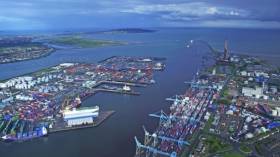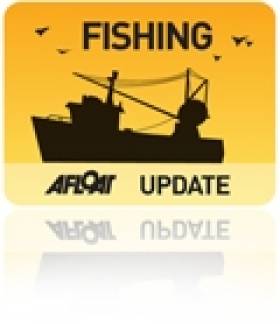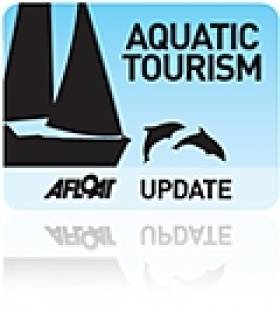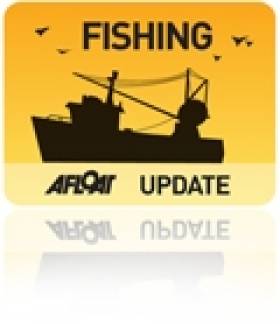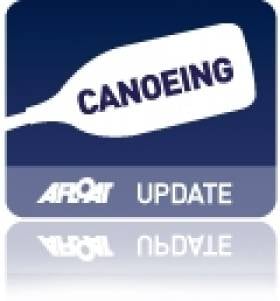Displaying items by tag: sustainability
Damian Foxall Named Irish Sailing Sustainability Ambassador
Irish Sailing has named Volvo Ocean race veteran Damian Foxall as its sustainability ambassador.
The national governing body for sailing in Ireland says the Kerry sailor — who served as sustainability manager for Vestas 11th Hour Racing in the most recent edition of the VOR — “has committed to helping us support sailors, clubs and centres to make sailing in Ireland environmentally sustainable and help reduce our carbon footprint.
“We are excited to announce that he has committed to attending a number of Irish Sailing events to help share advice on sustainability and environmental impact.
“Damian brings a wealth of knowledge and experience to the table for us all to learn from. He completed 10 round-the-world races and is a passionate ocean conservationist.”
The ocean consultant will be guest speaker at the Irish Sailing Cruising Conference in Lough Ree Yacht Club next Saturday 16 February, and will also be presenting Irish Sailing’s first Sustainability Award at tonight’s Volvo Irish Sailing Awards – just a few days after his recent skiing adventures on Ireland's highest peak.
‘No Compromise’ On Sustainability In Volvo Ocean Race Says Damian Foxall
#VOR - Kerry sailor and Volvo Ocean Race veteran Damian Foxall had a very different role in the most recent edition of the round-the-world yacht race.
As sustainability manager for Vestas 11th Hour Racing, Foxall was responsible for guiding the team towards the title of the race’s ‘most sustainable’. His secret? “No compromise.”
Foxall spoke to Sport Sustainability Journal upon the publication of his team’s comprehensive sustainability report, which outlines various initiatives from grants for local projects along the route, to carbon reduction and offsetting on the yacht and among the crew.
The latter included the likes of reduced plastic packaging for official race clothing supplied by Musto, to ‘meatless Mondays’ below deck.
“The further we got into the race … we found sustainability brought a depth and strength to our team,” Foxall says.
Sport Sustainability Journal has much more on the story HERE.
Inland Fisheries Ireland Signs Up To Save Energy With SEAI
#IFI - Inland Fisheries Ireland has officially signed up to the Sustainable Energy Authority of Ireland’s (SEAI) Partnership Programme, which helps integrate energy management into public sector organisations.
This new partnership will see IFI follow a clear path to achieving targeted energy savings of 33% across the public sector, with a view to achieving year-on-year savings of greater than 3% on top of the 21% increase in efficiency already reached sector-wide.
The State fisheries body says it has already commenced a number of energy saving initiatives in recent years, which include the introduction of ‘green patrols’ for fisheries officers using kayaks and bicycles to patrol angling areas on inland waterways; installing solar panels and insulation on buildings; fuel monitoring and fleet audits; altering lighting; and trialling an electric vehicle.
IFI chief executive Dr Ciaran Byrne commented: “As custodians of the fisheries resource, Inland Fisheries Ireland recognises the importance of energy management as a highly cost-effective means of reducing greenhouse gas emissions and helping to reverse climate change.
“Today [Tuesday 7 March] we have formally committed to reducing our energy usage and our carbon emissions and we look forward to working with the SEAI on reaching our goal by 2020.
“There are many benefits to energy efficiency and aside from environmental reasons; we are also motivated by the desire to operate in a lean manner. We know that many organisations can achieve 20% monetary savings in energy use through proven management and technology solutions so as an organisation, we will benefit year on year.”
Jim Gannon, CEO of the SEAI, added that the agency “is working closely with the public sector to help them to achieve energy savings and agencies such as IFI have a key role to play.
“Already, public bodies have achieved more than €600 million in energy efficiency savings in the last few years with SEAI’s assistance. With more partnerships like the one Inland Fisheries Ireland has committed to today, even more public sector savings can be achieved as we move towards a low carbon future.”
Lough Neagh Joins List Of Top 100 Sustainable Destinations
#Tourism - Lough Neagh joins an exclusive list of 100 ‘sustainable destinations’ after its success in a global tourism competition this week.
As the News Letter reports, the largest inland waterway in the island of Ireland was put forward for evaluation by the Green Destinations Top 100 team, which narrowed down 150 nominees around the world to those taking sustainability most seriously for locals and tourists alike.
Eimear Kearney of the Lough Neagh Partnership was on hand to accept the prestigious designation at the Global Sustainability Competition in Ljubljana, Slovenia.
“For Lough Neagh to be named among the 100 greenest of destinations worldwide is a real achievement,” she said.
The partnership has recently launched a new scheme to improve habitats for protected bird species around the lough, according to BBC News.
The good news for Lough Neagh comes in the same week that a number of maritime tourism operators were featured at the 2016 Irish Responsible Tourism Awards, as previously reported on Afloat.ie.
Dublin Port Hails Recycling Rates In Latest Sustainability Report
#DublinPort - Dublin Port achieved a 97% recycling rate in 2015, according to its latest sustainability report.
Published over the summer, the report also highlights a 97% reduction in water consumption and a successful surveillance audit for the ISO 14001 environmental management standards among its achievements in a year that saw significant increases in imports and exports, trade vehicles and passenger numbers.
Trade volumes have continued to rise into 2016, with an 8% increase in the first six months of this year, as previously reported on Afloat.ie.
This is the third sustainability report released by the Dublin Port Company since statistics were first compiled for 2013.
Green Business Hub For Belfast Lough Foreshore
#BelfastLough - Belfast Lough's north foreshore will soon be home to a concentration of sustainable businesses that promises to be a first for Northern Ireland.
UTV News reports on the Cleantech Hub, a 30-acre waterfront site at Giant's Park aimed at firms in the renewables, environmental and low-carbon sectors.
Already adjacent to the site is a plant that converts gas from landfill to electricity powering 2,500 homes.
And it's hoped that the new scheme "will now firmly position the city as a leading destination for green technology, enhancing the profile of the sector here, as well as generating interest beyond these shores," according to David McNellis of agents Lisney, managing the hub on behalf of Belfast City Council.
UTV News has more on the story HERE.
#Aquaculture - Marine Minister Simon Coveney yesterday (12 June) launched a public consultation on a draft National Strategic Plan for Sustainable Aquaculture Development, proposing 24 actions and initiatives to boost the sustainable growth of aquaculture.
The reformed Common Fisheries Policy requires EU member states to prepare multi-annual national strategic plans to drive forward the sustainable development of aquaculture, and the draft plan launched this week has been prepared in that context.
Commenting on the plan, Minister Coveney said: “Aquaculture is a rapidly growing industry internationally with very rapid expansion opportunities identified over the coming decades to meet the ever growing seafood demand arising from population growth and increased consumption in Asia.
"Aquaculture internationally produced 67 million tonnes of farmed fish in 2012 and it is projected to increase to 85 million tonnes by 2022. That global projection to increase aquaculture production by 18 million tonnes by 2022, puts in context the proposals in the National Strategic Aquaculture Plan to increase Irish aquaculture production by 45,000 tonnes, across all species, by 2023.
"While the targets in the plan are ambitious in the context of the past performance of this industry nationally, they are modest in the context of the global expansion which this industry will experience over the next seven years.”
Minister Coveney added that “our aquaculture industry has long been recognised as an area with potential to grow significant value and employment and to sustainably provide the raw material to enhance our processed seafood exports. Clearly, that has not happened and there are many complex reasons for that.
"At the same time, concerns have been raised about the environmental sustainability of the industry. In this plan, I have sought to identify all of the issues affecting both the growth potential and sustainability of the aquaculture industry and I am proposing a suite of 24 tailored actions to boost sustainable growth, while allaying legitimate areas of concern.
"With these initiatives, I believe we can get our aquaculture sector back on a path of sustainable growth and provide much needed jobs in our coastal communities."
Actions proposed in the draft plan include the introduction of a set of guiding principles for the sustainable development of aquaculture, recommended to the minister by the Marine Institute, together with scale limits and phasing in relation to the development of individual offshore salmon farms, also recommended by the Marine Institute.
Other initiatives include a review of the regulatory framework for aquaculture licensing and associated administrative procedures, and financial supports to build capacity, foster knowledge, innovation and technology transfer and expert advice and training for aquaculture operators in business planning, disease management and environmental best practice.
Submissions on the draft plan and related environmental report and appropriate assessment are invited by 24 July 2015 to [email protected]. Relevant documents are available for download HERE.
Loop Head Named As Top Sustainable Tourism Destination
#Tourism - Loop Head Peninsula has been named as one of the world's top 100 sustainable travel destinations, as The Irish Times reports.
The breathtaking Clare coastal spot is featured with the likes of the UK's Lake District and New Forest, Easter Island in the Pacific and the Wild Coast in South Africa's Eastern Cape in the first Sustainable Destinations Global Top 100 travel guide.
The Irish Times has more on the story HERE.
Marine Launches Consultation On Food Research Agenda
#Fishing - The Department of Agriculture, Food and the Marine (DAFM) has opened an online consultation process to capture stakeholder inputs to the development of strategic research and innovation agenda (SRIA) for food-related research.
The consultation process concerns two food-related research priorities – Food for Health, and Sustainable Food Production and Processing – that were each identified in the Report of the Research Prioritisation Steering Group.
While the DAFM is particularly interested in receiving submissions from users of research outputs, the process is open to all interested parties - and has particular relevance for the fishing and aquaculture industries in the wake of revisions to the Common Fisheries Policy.
Further details of the consultation process, including instructions on how to make submissions are available on the DAFM website HERE.
The consultation process remains open until 6 March 2014.
Father-Son Duo in Charity Paddle from Dublin to Donegal
#KAYAKING - A father-and-son duo from north Co Dublin will shortly embark on an epic kayak paddle from Dublin to Donegal, the Fingal Independent reports.
Dermot Higgins and his son Fionn, from Rush, will attempt to kayak from Dublin Port to the Atlantic Ocean at Ballyshannon - a distance of some 330km - by way of the Royal Canal, the River Shannon and Lough Erne.
The Higgins' - who believe they are the first to attempt such a feat - will be completely self-sufficuent for the duration of the challenge, which is hoped to raised funds for the Rush Open Organisation for Transition Status (ROOTS), a charity that intends to help communities reduce their carbon footprint and face up to environmental challenges by encouraging sustainability.
The Fingal Independent has more on the story HERE.




























